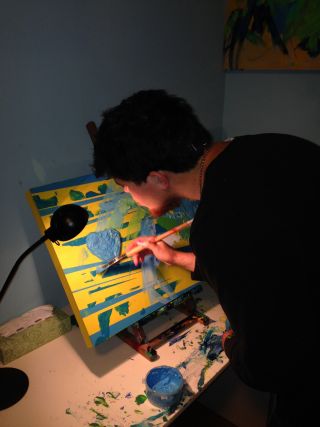
Autism
Envisioning the Future for Your Child with Autism
Parents need to ensure their child is learning skills needed for life as adults.
Posted February 25, 2015
I like the idea of having my own house with roommates, but I also want to live with a woman who will make me happy. - Jeremy Sicile-Kira , A Full Life with Autism (Macmillan).
It is hard as a parent of a child with special needs, including autism, to think positively about your child’s future because everyone else is usually focusing on their deficits. That's the way the systems work that are there to help you and your child. They are looking at what is wrong with your child, so that they can validate providing the necessary service your child needs, or so that effective goals and objectives can be written to provide an appropriate program.
And I’m not knocking that. I just know, as a parent who has been there, how depressing that is. As a parent you try to focus on the positives and celebrate every little thing your child learns to do, and that smile you finally get, or that first word or first step—even if it happens years later than anyone else’s child.
When envisioning the future of your child as an adult—any child—it’s important to focus on the strengths that are apparent. And as the parent of a child with autism, it’s even more important. The strengths your child has will help him overcome his deficits, perhaps even become a way for your child to be employed as an adult or be motivated to learn more skills he or she will need for real life as an adult.

The strengths may not easily be apparent. When my son Jeremy was little, his most apparent strength was following the colorful floral patterns in our Persian rug, which did not really indicate any employable talent except perhaps as a quality checker in a rug factory. Yet now he is a painter—he paints beautiful abstract portraits that people want to own. We realize now that his attraction to patterns over the years showed his interest in colors and the beauty that can be created using color and placement.
Parents need to be envisioning the future for their child because, let’s face it, most of the educators and other professionals working with your child are focused on the present, on what your child needs to learn now. But as a parent you need to be cognizant of what life skills your child needs to learn for life as an adult. He or she needs to learn these while still in school once they age our of transition programs or graduate from high school. These life skills are: Making Sense of the World, Communication, Safety, Self-Esteem, Pursuing Interests, Self-Regulation, Independence, Social Relationships, Self-Advocacy, Earning a Living. I've discussed these life skills, with the advice of adults on the spectrum, in my book Autism Life Skills: From Communication and Safety to Self Esteem and More: 10 Essential Abilities Every Child Deserves and Needs to Learn (Penguin).
Envisioning the future for your child is empowering, because when you have a vision, then you can create goals. And when you have goals, you have an idea of where you are headed. In A Full Life with Autism: From Learning to Forming Relationships to Achieving Independence , my son Jeremy and I have gathered information to help parents realize the resources that are—and are not—available and how parents and professionals around the country are creating noteworthy projects. And that is how the future is created!

